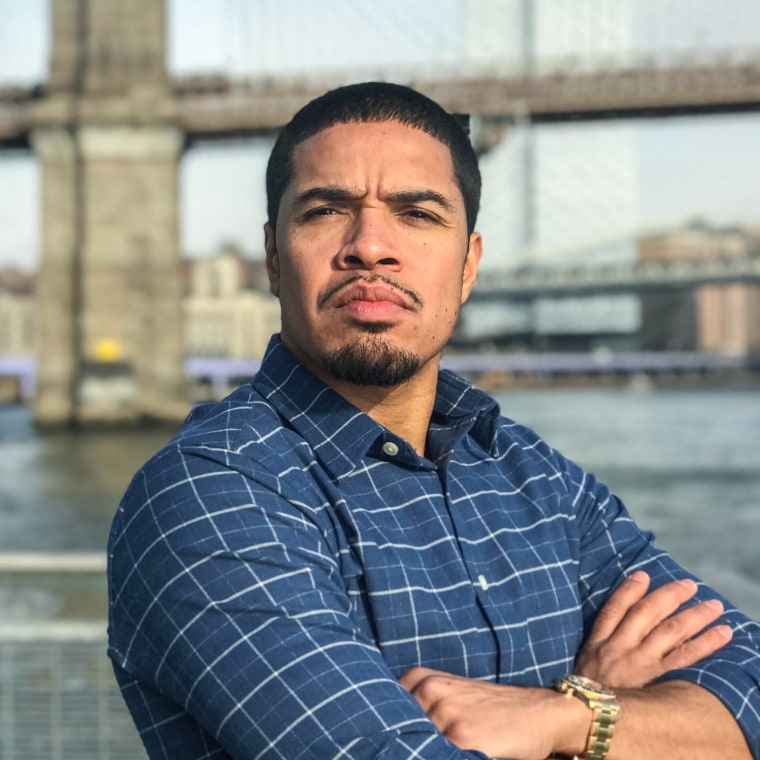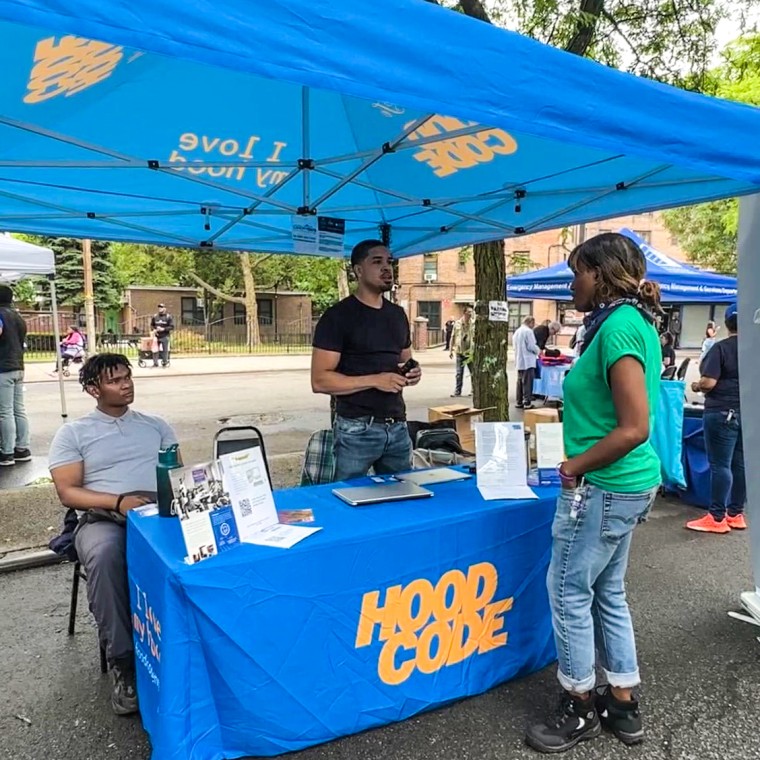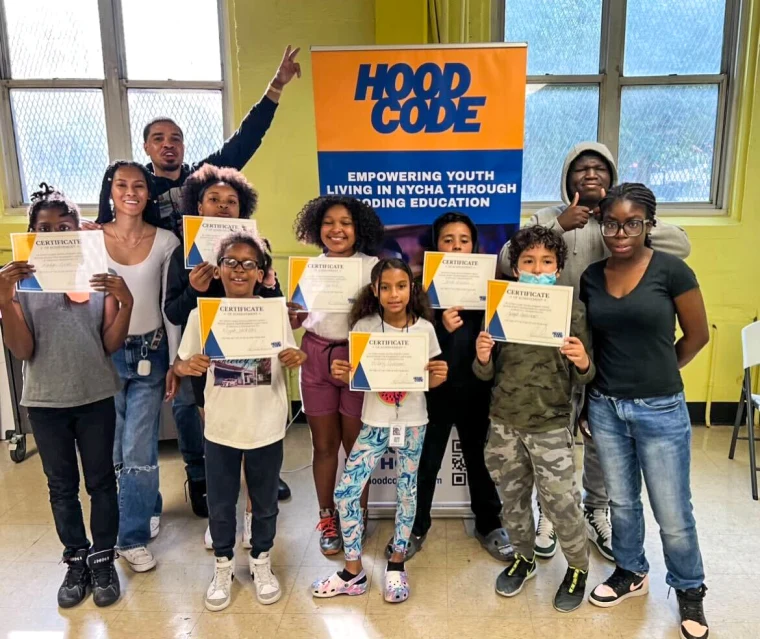This group brings free coding education to low-income NYC students NBC News on March 11, 2024 at 5:46 pm
This story was originally reported for NBC News, By Maya Eaglin and Nicolle Majette
Founder Jason Gibson said Hood Code was designed “to make it easily accessible to the families that live here.”
Tucked away in the red-brick community center of the South Jamaica Houses in New York City is a small multipurpose room filled with plastic chairs and tables. A piece of paper taped on the door shows the schedule for the day, with Hood Code starting at 3 p.m.
Right on time, the quiet room fills with giggles and sneaker squeaks as children pile into the space, each one excitedly talking over the other.
Hood Code is an organization that provides free coding classes to students who live in New York City’s public housing. These apartments are home to more than half a million low-income families and individuals, and 25% of them are under the age of 18.
Founder Jason Gibson said Hood Code was specifically designed to be in these neighborhoods and serve this community.
“I wanted to make it easily accessible to the families that live here,” Gibson said.

The workshops introduce the basics of coding to kids ages 8 to 13, and have so far taught about 300 children in housing buildings throughout the city. The programming also helps them develop problem-solving skills, self-confidence and innovative thinking.
The students primarily use Scratch, a free block-based language program that allows them to express themselves creatively and learn the basics of how professional coders create some of their favorite video games and apps.
Many of the kids embark on quests to make their own video games or re-create their favorites, finding inspiration in games like Flappy Bird and Geometry Dash.
Gibson founded Hood Code in 2019, but the idea for the program was born two years prior — from behind bars.
While serving a five-year sentence, Gibson spent most of his time expanding his knowledge and researching both the tech industry and African American history.
“That was my first opportunity to really sit down and read,” Gibson said. “And I realized how much of a disadvantage I was at and how kids from my neighborhood are in.”
Those disadvantages inspired Gibson to provide his community with opportunities that he says he wished he had growing up.
“I think my life could have possibly been different,” Gibson said. “I’ve always been an entrepreneur, I’ve always had that spirit. I could have been maybe one of the big tech founders.”
Gibson used that entrepreneurial spirit to gather sponsors and community members to ensure that Hood Code would be free for students and a paid job for tutors, many of whom are in high school.
“Coding is not always necessarily accessible to kids that we teach,” Chigo Ogbonna said. She’s a high school senior and a tutor at Hood Code. She and her friend Sara Outar decided to take on the job together.
“I think it’s because we both come from low-income communities, we understand. I didn’t have a computer until basically high school, when I had to do online school. And I didn’t even know that jobs in coding existed,” Outar said.
Black people made up 9% of the STEM workforce in 2021, according to the National Center for Science and Engineering Statistics. A 2021 Pew Research analysis found that Black and Latino adults are less likely to earn STEM degrees than degrees in any other field, and they make up a lower share of STEM graduates compared to other populations.

“I think the passion, the drive that these kids have is something that you don’t see in your ordinary kid, because I know that they had to work 10 times harder to be here,” Ogbonna said.
With $200,000 from The David Prize, a no-strings-attached award given to New York-based innovators that the organization won in 2022, Gibson said he is more determined to continue expanding Hood Code’s programming.
“I wish people knew about some of the creativeness that the students have, the ambitions that the students have, the abilities that the students have, and the interests,” Gibson said. “I think people have stereotypes or their own beliefs about neighborhoods like these in general, and a lot of times they’re wrong.”

